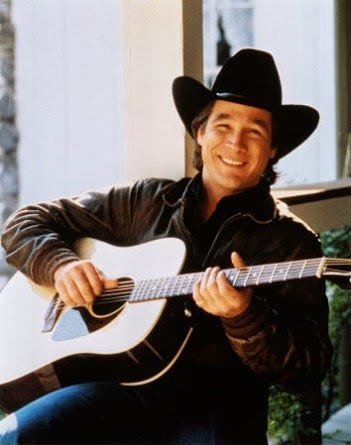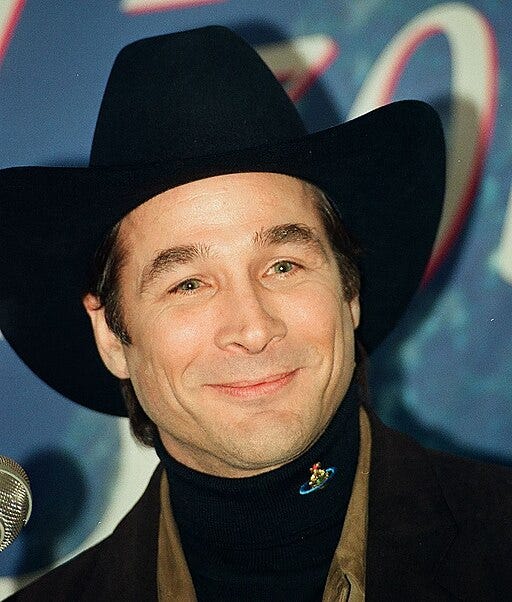
When I heard that Rolling Stone was about to open a Nashville bureau, I got off the couch and into my freelance uniform. Having recently been terminated from my position as editor of CMA Close Up, I was interested – maybe desperate? – to scrounge as much work as I could. Fortunately, by that time I had built a pretty strong network of connections in the industry, which allowed me to generate a decent income quickly.
I was writing bios, contributing to USA Today, Country Weekly, Downbeat even writing reviews at $10 a pop for Book Pages magazine – but Rolling Stone would be the jewel in any music journalist’s crown. So I started pitching the inaugural head of the bureau, Beville Dunkerley. We’d developed a collegial relationship over the previous few years, while she was working at WSM Radio. This gave me hope that I might get my byline online with RS fairly soon.
What I hadn’t reckoned with was that every other writer in Music City was clamoring for the same thing. This led me to a moment of reckoning: What could I do to rise above this formidable crowd?
The answer hit me a few days later, as I was exiting the Sitar Indian restaurant after a lunch meeting. Right there, across 21st Avenue, was a Krispy Kreme Donuts. Now, these gooey treats had lost their appeal for me since 1974, when I moved from Austin to California, which meant leaving the amazing Mrs. Johnson’s Donuts behind. But I knew that along Music Row they retained a certain currency, so I crossed the street and bought myself a dozen. From there I headed toward the RS office near Music Row, walked in and handed the sugar-soaked box to Bev.
She responded as I had hoped, with surprise and a freelancer contract. Maybe fifteen minutes later, licking away the remains of glaze and a few sprinkles from my fingers, I walked out with an assignment. I don’t quite remember what it was, but it was the first in a shorter stream than I would have preferred of very helpful jobs.
Clint Black was, I think, the second of my artist interviews, after Charley Pride. He was about to release On Purpose, his first studio album in ten years, whose highlights included his first vocal duet in quite some time with his wife Lisa Hartman. As I would note in my article, “most contemporary country focuses on the present (i.e., partying) or the immediate future (i.e., partying later tonight). Black’s latest sprinkles a pinch of insight into the mix,” with songs that suggest toning down one’s rowdy lifestyle to increase the odds of living past one’s thirties.
What I didn’t know at the time was that my run as a RS contributor would end a year later, when Bev accepted a new gig as Head of Country Music Talent & Industry Relations as SiriusXM/Pandora. For reasons I’d prefer not to share, the new regime wasn’t receptive to my pitches. Maybe donuts might have helped again, but I doubt it. It was fun while it lasted.
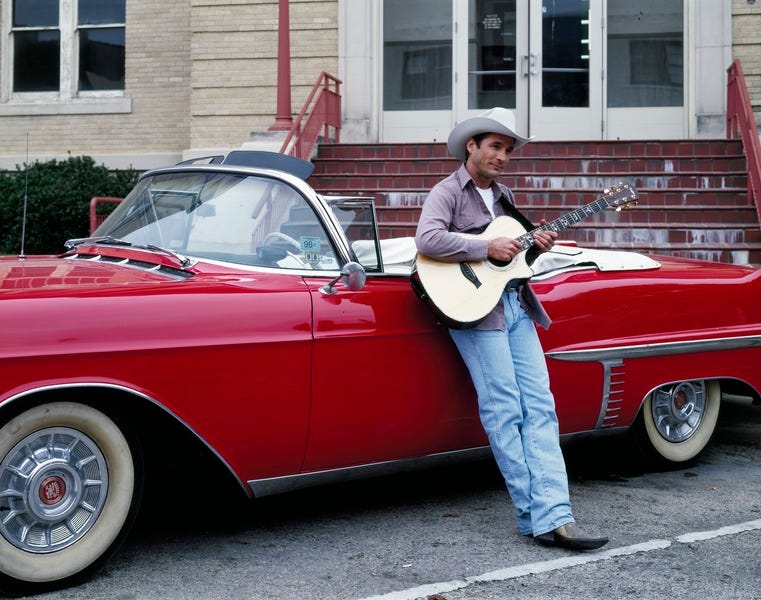
****
How has country music changed in the ten years since your last album? Have those changes affected how you approached this album?
Well, music in general has changed a lot. I've been asked this question several times since I peeked my head back out, so I've been giving it some thought. I think it comes down to the country music culture is being shaped by a new generation on Music Row of label heads. At each major label, there are probably three people deciding what songs to cut, what songs get released, who produces them and how they'll sound. I wasn't that aware of it because I always wrote and produced my own albums with James Stroud, for the most part. To RCA's credit, they released them the way I made them, with only one exception where they asked me to take two songs off of one album and replace them with whatever I had other than those two songs they didn't like.
It wasn't until years later that I got a glimpse of how it worked for almost everyone else. I was in a studio when someone got a call from one of the other labels about the production. Somebody kind of schooled me on how it normally goes. I feel really fortunate that I was able to do my own thing. But the head of the label would call the producer and not even talk to the artist and say, "This sound isn't working. We want it to be more like this. We want it to be more like that." In some cases, it was the actual head of the label telling the producer what to do with the music.
I did my own thing in Texas. I thought it was different. Killin’ Time [Black’s debut, released in 1989] wasn't the kind of album that was driven by really polished session players. It was my guys. As time evolved, I did involve session players and become more polished. Then after the Nineties, a new generation of label heads came in. Those are the minds that drive the music culture now. It seems to me that those are the minds that drive the music culture now and they're pushing more toward including rap and pop styles in country music. We've had the huge, string-and-chorus-laden sounds in the Sixties, the Owen Bradley and Chet Atkins stuff. The other styles that are being brought in now are much more aggressive. We all used to joke that "it won't be long before people will be rapping in country music." And then it actually happened. What's happening outside of country music is entirely different, so it's going to be very different within.
As you go through all that, the new generation of record company executives are bringing their own tastes for rap and pop along with them. That's just what we're seeing. It's brought a lot of fans to country music but it's also pushed a lot of fans out. The only reason I know this is because I hear from them. I'm really active on Twitter and Facebook and I pay attention to a lot of the lost lambs out there. A lot of them have turned to Americana. That's where they find the country style they grew up with. It's really interesting. It's a fascinating animal to me. I do love analyzing it. It's hard to be critical of it because I know how hard it is for artists to get what they're going after in the studio but they're not even entirely in charge of what they're going after in the studio.
A lot of times I'm asked if I like it. That's a different kind of question. I really like understanding why it is the way it is. It comes down to one thing. Scott Borchetta [CEO, Big Machine Records], for instance, is going to shape everything that comes out of every record company he's in charge of. And it's not just Scott: We're going to hear how everybody running the labels now is going to shape music.
I saw an email once from a publisher. At the bottom of the email, where the signature was, it said something like "shaping the sound of country music." It stood out to me because I'd always thought the artists were shaping the sound of country music and all music styles. I shaped my music for the most part.
That's the short answer, Bob [laughs].
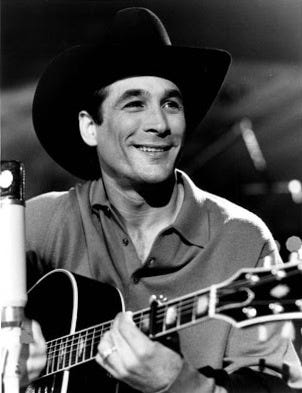
At last week's Americana Festival, someone sang a song called, "Country Music, I'm Talking to You," whose criticisms of modern country music drew roaring cheers from the audience. Did you make a deliberate decision to cater to disaffected country fans with your album?
You know, I didn't. I made this the way I made all my records: I write songs that I'm inspired to write, or ask myself what kind of song I like or what kind of song I don't have. It's always been the same process for me. But I'm influenced by where the edges are. I know where the edges are with contemporary music. Then I know where my own edges are. I like to go to the edges but I decide where they are for me.
In the studio, I'm really not thinking about how this will sound in the context of an Eric Church or a George Strait or Americana. I'm focused on two things: Number one, what is the song asking for? How are things fitting into the track? And number two, does it sound good sonically? I've worked so hard in the studio to learn how all the engineers I love do records. I've gone through tedious processes, including importing dozens of tracks into Pro Tools, muting and unmuting them one at a time, dancing around from Ricky Skaggs to Steely Dan to Jackson Browne to Willie Nelson to George Strait to Patty Loveless and all over the place, just hear how different every record sounds in the context of all the other records.
“I’m competing with myself as I try to be myself with my own music.”
I've always felt that I'm competing with myself as I'm trying to be myself with my own music while also understanding that all the edges are farther away from me now than they were before. So if I want to go to the edge, I know how far I have to go to get there.
Many of the songs on your new album are built on foundations of experience and things you've learned from life. A lot of modern music is more present-tense: "We're partying tonight." Your songs are also less demographically specific, even though it's obviously country music. And even when you write about "Beer," you put it into an international context. Could you have done these experience-based songs ten years ago?
First of all, I love your analysis. That makes me very proud.
I do think I could have done it ten years ago, but if you've lived through your thirties and your forties, you learn things about life and about yourself, mortality and time and all of that stuff. So, yes, some of the wisdom that I've gained in the decade since wouldn't have been there ten years ago. You can learn a lot in ten years. Think about how much we mature from age twenty to thirty. I'm really big on gaining wisdom and knowledge. I'm a high school dropout, and one year after I dropped out I realized my mistake. I started then to try to make up for it. I've got friends who imparted knowledge to me and passed along something from Proverbs that made me think. I had to read about Solomon and think about "why did he write this stuff?" He wanted to get wisdom to the young as much as he could so they could benefit from it sooner.
All of this stuff came about during the past ten years because a friend passed something like that along to me and I realized I could actually be working harder at this [laughs]!
Now that I'm a dad and my daughter is a teenager, I get asked if my songs are different. My answer has always been that it's probably different because the well keeps getting deeper. I have farther down to reach now in the well of inspiration for life experiences, wisdom and all of that. A song like "Breathing Air" maybe wouldn't have been there, or "Time for That." A lot of that stuff would have been different ten years ago.
"Time for That" and "Better or Worse," where you write about "pushing too hard, leaning too far, thinking I can have it all," these are reflective songs. Do you have a listener in mind as you write these tunes?
Probably not but definitely so on "Better and Worse" because I have a daughter and she can feel entitled -- entitled to go to a party, entitled to stay up late, entitled to a cookie, you name it. She can feel like that's her birthright, and we're there to say, "Hey, you are sadly mistaken. You are entitled to our love and our support. The rest of it, you have to earn." That's where that line came up, that "not everything's gonna go my way." When I was a kid, I really didn't realize how much of my own way I was going to have to earn in my lifetime. You think the world exists in a fifteen-year period, and five years from now is an eternity. I keep telling my daughter, "Look, you can live to be 80, 90, 100 years old -- and by that time people could be living to be 150! You better get busy with that 401K or whatever it is that'll help you be safe, secure and happy in the future."
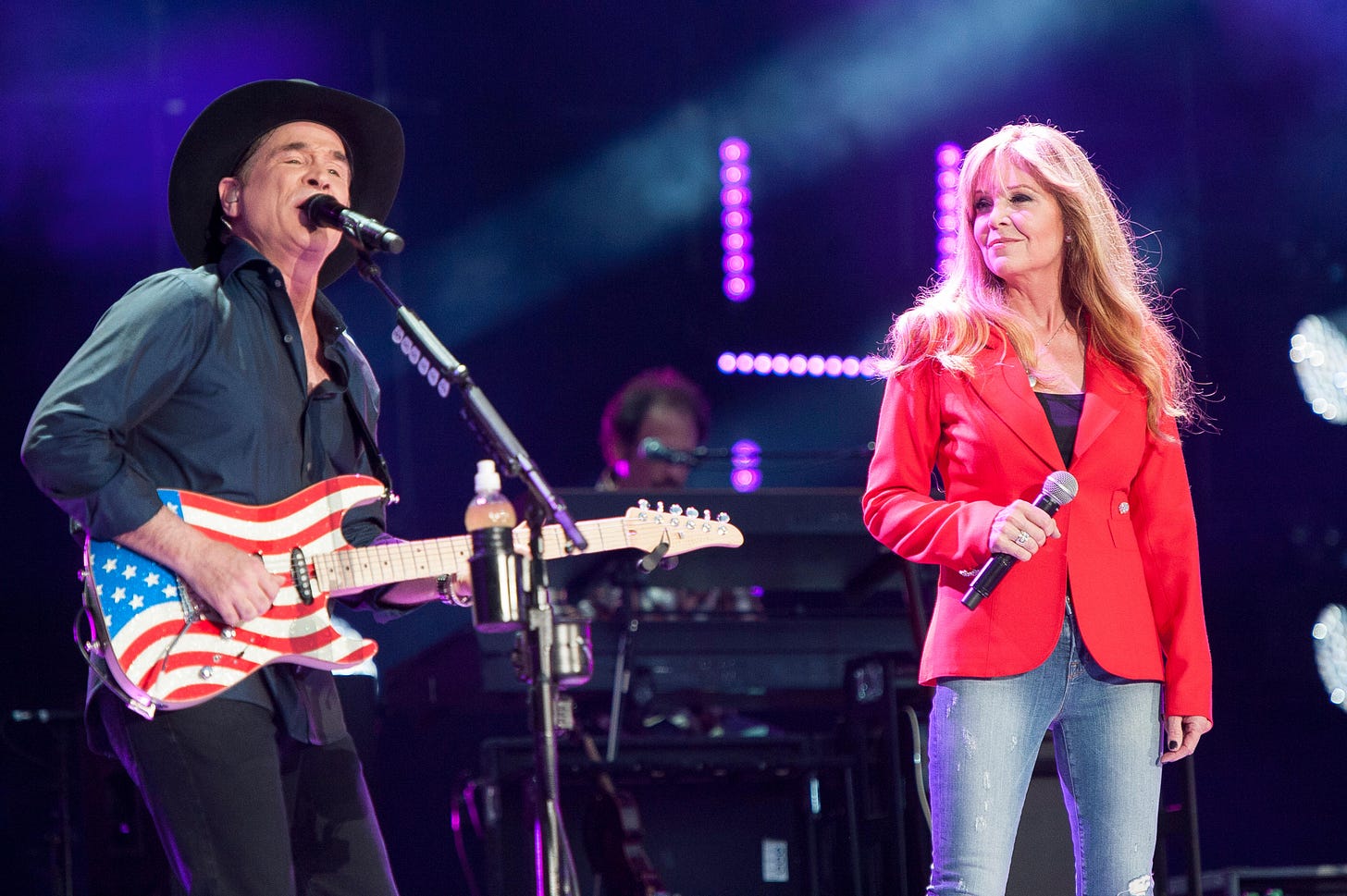
Let's focus on "You Get to Me." When did you and Lisa first sing together? Did you sense a strong connection immediately?
I knew that way before the duet, when she would harmonize on standards I would play by other artists that she was familiar with. The harmony was great. She's got a beautiful voice. She also expertly attuned to what note goes where, what doesn't fit into the chord and what does. So even when I would give her some mistaken direction on something, she would know that note doesn't work. So she just fits right in musically. You put that with a beautiful voice and you can sing with her all day long.
I was working on D’lectrified [released in 1999]. I had all these artists on the album who had been influences on me. I was covering some of their songs and I realized the biggest influence on me now is my wife, so I needed to include her on this. I started writing when I said "I do" in the kitchen; I had a guitar strapped around my neck and a notepad on the island. I was teaching her the lyrics to the chorus. She was singing along. She doesn't know I'm writing it for us; it's just another thing I'm making her sing with me in the kitchen.
“If you’re standing before God … what would we say to each other?”
The premise behind that song came from asking myself a question: If you're standing before God and the whole world, singing to each other, what would we say to each other? The song answered that question. But it was really hard to get her to record it with me. She kept agreeing to do it and then talking herself out of it, trying to get me to get someone else to sing it. She hadn't sung in a while, since I was making records at RCA, so she didn't consider herself a singer. I can't even hardly say that because she's a great singer. But she was pushing that away. Finally, four days before the deadline, I guilted her into it and just in time.
How did you "guilt her into it"?
Well, I said, "I'm not going to get anyone else to sing it. We are going to look back on this song with just me singing it and wish you were there." So she finally said okay. I kept saying things like, "Refer to the conversation of October 13," but that wasn't working [laughs].
Victoria Shaw was your co-writer on this track.
Victoria and I kept running into each other around town all the time. We talked about writing together. When I decided I was going to write another duet for us, I asked her to help me. I really wanted to bring Lisa's voice to the lyric, not just to the music. It really made a difference. There are things that wouldn't have been in the lyric if it had just been me. Victoria and I would arm-wrestle over stuff. I'd think, "We can't write that! It's not something I would write in a song." And Victoria would say, "Right, because that's something a girl would write and sing. We should put it in there!" We had a lot of fun going back and forth on that stuff. Ultimately, the song is better suited for us as a duet because of Victoria and her sensibilities.
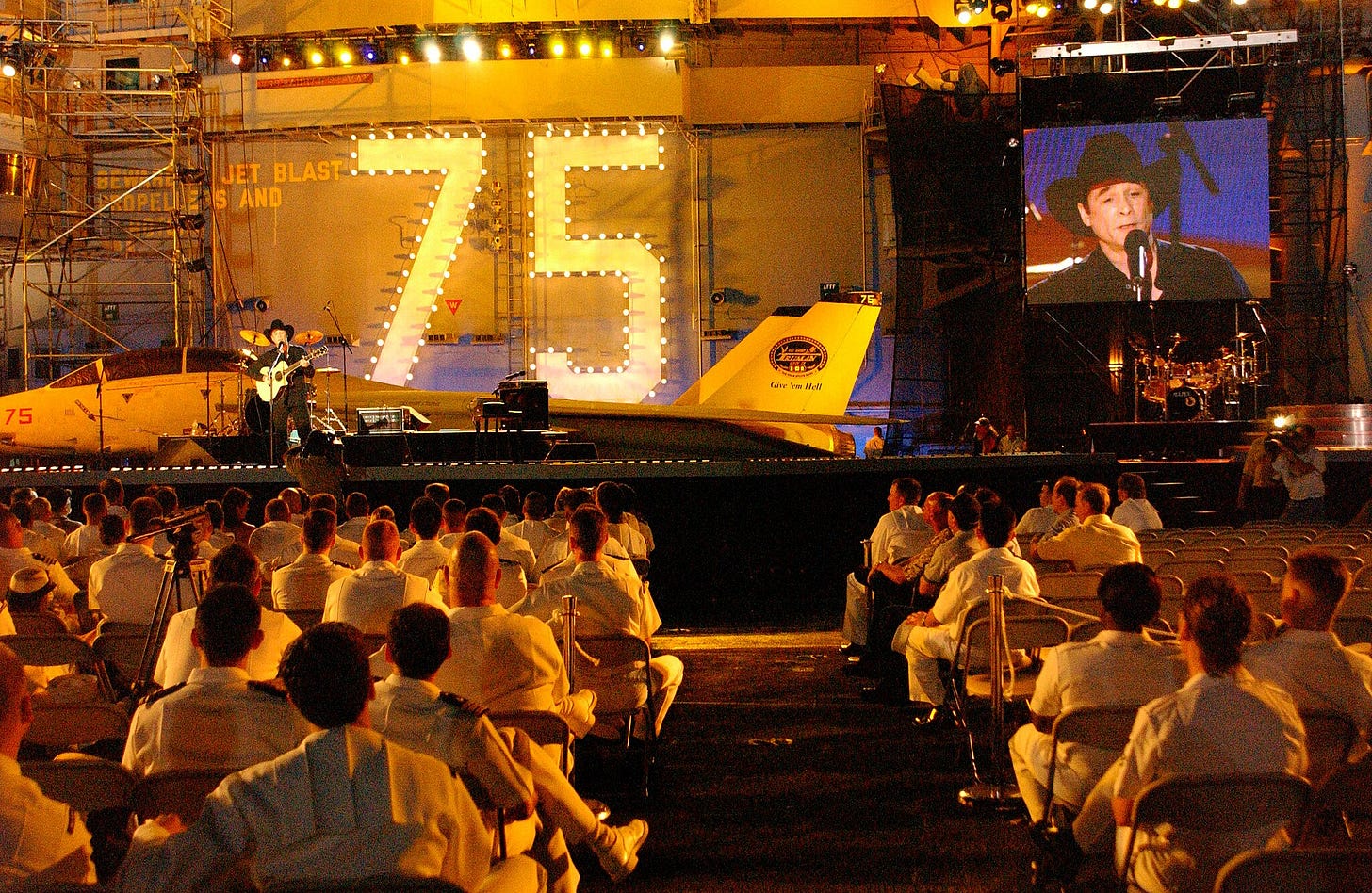
I'm thinking of the line "First time I saw you, honey, you lit a flame / I started melting, I still feel the same." That must have been one of hers.
No, I put those words in Lisa's mouth just to make me look good [laughs]. All kidding aside, I'm sure we can attribute that to Victoria.
Again, here's a song with history behind it. It's about a love in the present but it's based on so much that came before.
I'm going to use all of this in my future interviews, Bob -- this is great [laughs]. I hadn't thought about all that you've said about the experience in there. But it really is so. What I've said about the song before is that as we've grown closer and closer together, we become more attracted to each other because we have not just the physical attraction but the shared life. I know the person behind her voice. I know the person behind her eyes. I know how wonderful she is and I love her more each day. You have to take the whole attraction into account. I think it's something special to say "you still get to me." I hope it's a message we can all say as we get older.
“The musicians you use on a record become a band all at once.”
Why did you cut this song in Los Angeles instead of Nashville?
I was going out there to put some orchestral parts down because that's where my arranger is. I decided if I was going to do that, one of the songs had to be cut and then have the strings added to it on the last day. I didn't have a track on that and it was one of the orchestral things. The other tracks the strings went onto was "Stay Gone," which I cut in my studio in Nashville. So I decided to take a couple of things to L.A. and cut them with the guys out there that I've cut a lot of other stuff with over the years.
I lucked into being able to use Jackson Browne's studio for a little bit of that and Oceanway for the rest. I used some musicians who had played on Nothing but the Taillights [Nothin’ But the Taillights, 1997] and a lot of the D’lectrified stuff. [Keyboardist] Matt Rollings used to live in Nashville and he played almost all of the keyboards on my records since 1992. I always want to have him on the record. There was no reason to fly him into Nashville if I was going to L.A. to cut the strings.
It's such a special experience. The musicians you use on a record become a band all at once. It's something different with whatever group you're using, whether it's my own guys or session guys in Nashville or some guys in L.A.
Since you have access to so many great musicians, why didn't you call a slide player rather than play slide guitar for the first time on a couple of these tracks?
I still listen to that and think, "You know, that could be better." It was a real struggle. I never played slide guitar before this album. I did it first on "Fear" and then on "Breathing Air." I got the action up on my guitar to make it suitable for that. I got a little better and a little braver each time. Once I was digging into a part, it was just as hard. It took a long time.
That question about why I didn't call someone in popped into my head repeatedly on every track -- not just slide but a lot of the electric guitar stuff I did. There are guys who can capture a fantastic part, creatively and technically, in the course of a tracking session. Or someone can come in for an overdub session and get great stuff in half an hour or an hour. I'm the opposite. I'm the guy who sits there and works on something for eight hours to get it the way I like it. Then I'll come back in the next day and realize, "Boy, I drifted off. A lot of that isn't working." And I'll start from scratch or change parts.
But it was a growing period, a learning period. I had to become really proficient at changing back and forth from guitar tones and getting used to knowing instinctively which guitar to grab, like a Brent Mason would. As soon as he gets a sense of what the song is, it's like, "Okay, this is a Telecaster or a Les Paul or whatever.'" You hear it and you know instantly that's the right guitar. It wasn't that way for me but I grew into that in the course of that album.
So how long until your duo album with Sonny Landreth comes out?
Uhh … I would say, at the rate I'm growing, thirty years [laughs]!
####




